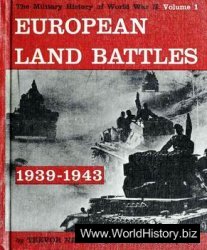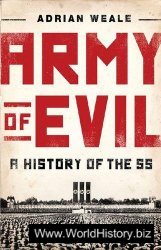During the nineteenth century historians counseled kings, were leaders in the unification of Germany and Italy, gave a prime minister and a president to France, provided identities to new and old nations, inspired the young American nation in its mastery of a continent, endowed revolutions with the authority of the past, and ascended to the rank of scientists. Above all, they convinced most scholars that everything must be understood in terms of development; in short, historically. No wonder that Thomas Carlyle proclaimed history to be immortal: “Some nations have prophecy, some have not: but of all mankind, there is no tribe so rude that it has not attempted History, though several have not arithmetic enough to count Five.”’
Today many smile not just about Carlyle’s quaint language, but also about his cocksure confidence. Living in this skeptical age they miss in the passage a proper measure of doubt and caution, if not a share of their suspicion that history has become a bit old-fashioned. Had not the historians of the nineteenth century proclaimed that everybody and everything changes and that there are no timeless concepts? Could it be then that history’s days have faded with those of the nineteenth century? Our age, these skeptics argue, may simply require new methods for and new approaches to the “final” explanation of human life or, as some would put it, new intellectual instruments for mastering the world; a world in which it no longer suffices to observe “how things had gradually come to be,” as traditional historians have been doing, but one in which historians have to be content with unearthing the raw materials for the social scientists who alone explain, maybe even reorder, human life in a “scientific manner.”
Historians have reacted to such skepticism with bewilderment and, sometimes, with indignation. But in a world fond of technical jargon, mathematical approaches, systems analysis, model building, and the methods of the natural sciences, they have been increasingly drawn into theoretical discussions. When pressed to answer the query “Why history?” historians have fallen back on the long-standing defenses of history as a teacher of moral or practical lessons, an object of nostalgia, a justification for either old or new regimes, a gratification of human curiosity, a witness to God’s power, and, of course, a science. History can be any or all of these things yet still not be a system which compels conviction. Even worse, critics of history have argued that some of the functions are no longer needed while others could be carried out better by scholarly endeavors more in tune with modernity. Qearly, the claim of history to be perennial cannot be based on a limited list of functions; it can only be sustained by demonstrating the existence of a necessary link between history, as reflection on the past, and human life.
An examination of the list of functions history has performed over the centuries reveals that these functions stem from the central fact that human life is subject to the dictates of time. At this point it is best to refrain from asking what time is unless one wishes to share in the exasperation of an ancient questioner: “What, then, is time? If no one asks me, I know: if I wish to explain it to one that asketh, I know not.” Psychologists, whose love for experiments and expressing results in numbers provides them with proper contemporary credentials, have in their way reaffirmed that the dimension of time is central to all of human existence. They have found that the span of time which we actually experience as “now,” the “mental” present, is only about one-fiftieth of a second long. It does not matter that in everyday life we mean a longer time span when we refer to the present, the conclusion is inescapable that human life is never simply lived in the present alone but rather in three worlds: one that is, one that was, and one that will be. In theory we know these three worlds as separate concepts but we experience them as inextricably linked and as influencing each other in many ways. Every important new discovery about the past changes how we think about the present and what we expect of the future; on the other hand every change in the conditions of the present and in the expectations for the future revises our perception of the past. In this complex context history is born ostensibly as reflection on the past; a reflection which is never isolated from the present and the future. History deals with human life as it “flows” through time.
Some readers may well consider such pondering on history to be one of those strange flowers from the philosopher’s garden. Not at all; the existence of an inescapable link between past, present, and future, which destroys history’s image as an activity resembling idle rummaging in a bag of dry leaves and makes it into an activity necessary for human life, is experienced in daily life by everybody. There we observe how the expectations for the future turn first into the reahties of the present and then become the memories of the past-whether it be the fading of day into night, the change of seasons, the rise and fall of governments and states, or our own maturing and aging. They all testify to the continuous “flow” of time, although at a first look they accentuate the phenomenon of change. However, if we were to conclude that change is the only fundamental aspect of human life we would err seriously. Histories of seemingly unconnected changes, even if they were brilhantly written, would affect the reader like a thousand-hour-long look through a kaleidoscope; at first the observer is gripped by a fascination with the ever-changing patterns, then by increasing boredom, and finally by a deep sense of futility. History cannot for long remain the record of changes alone because that would deny the true nature of human Ufe in which the experience of change is counterbalanced by that of continuity. Individuals and groups have long since discovered that even in the aftermath of the most radical revolutions the “new age” stiU carries many marks of the past. This continuity displeases advocates of sudden and complete change but contributes to human life a sense of stability, security, and even comfort. Once we accept that human life is marked both by change as that which makes past, present, and future different from each other and continuity as that which links them together, we begin to understand why historians have played so central a role in Western civilization. They have designed the great reconciliations between past, present, and future, always cognizant of both change and continuity. In other words, they have made sense of or, as some would put it, have given meaning to human life without denying its development throughout time. This link between life and historiography also explains why in generation after generation and in society after society historians have created ever new interpretations of the past. Those who use these changing views of the past for proving that historical truth is unreliable ignore the fact that it is life which goes on creating the ever different worlds—not quite new, but also not quite the same-to which historians must respond. All other branches of scholarship dealing with human life have so far shared in this failure to bring forth the unchanging truth, although many of them have claimed timelessness for their theories and insights.
The task of historians of historiography then does not seem too difficult to describe; it is to trace the ways in which people in Western culture have reflected on the past and what these reflections have told them about human life in the continuum of past, present, and future. But the simple part of the task ends at this point because upon proceeding beyond abstractions we encounter complex questions which have shaped Western historiography; What actually changes? Which forces are at work in change? And what constitutes continuity? In specifically Western terms these questions pervaded liistoriography as the problem of the respective roles of a binding order and the freedom of the individual. What then should historians of historiography do wdth the answers to the questions formulated during the various periods in Western civilization? They could simply compile an inventory of past historical views, perhaps even produce an encyclopedia of historiography. But that would deny the assertion by historians that chronological sequence is crucially important. Yet it would settle little if one arranged narrative portraits of historians and their views chronologically, as pictures are arranged in a gallery along a corridor. It still would leave unresolved the all-important question whether there is more to historiographical development than a record of historiographical views that reflect merely the idiosyncratic attitudes of period after period and succeed each other without overriding order and direction. While these views demand equal respect as expressions of their societies and periods, their insights become invalid outside of their settings. Even modern historical science would be peculiar just to our period and have no special claim to universal validity. These arrangers have discerned no inherent direction in historiography or indeed in life itself.
Other historians of historiography have given preference to those historians whose views have presumably helped guide historiographical development toward a clear and known goal. By far the best known and presently most influential version of this view has equated the story of historiography with the emergence of the modern historical science. In their accounts these historians of historiography sort the wheat from the chaff, that is, they separate in all of past historiography those views which have contributed to the forming of the modern science of history from those which were based on “wrong” perceptions; the former earn praise, the latter reproach.
No simple technical trick enables us to make an easy choice between these two views or others. Once the link between history writing and the human condition is grasped in all its complexity, simple solutions vanish. Aware of that, I have endeavored to trace the complex story of history writing in a manner that wiU enlighten readers but will not satisfy the lovers of simplifications. Just as history as a human endeavor has persisted and will persist, despite contemporary doubts and criticisms, because it has rejected arid theoretical schemes and has remained sensitive to the complexity and the creativity of life, so the study of historiography is most fascinating and worthwhile if it is not reduced to catchwords and formulas but is studied in its fullness. Only then can it inform us about the career of history throughout Western history and its service to human life.




 World History
World History









